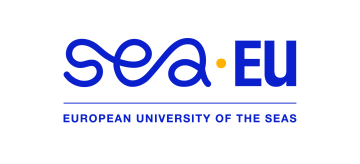Dr. Sainz's research focuses on developing an operational understanding of the nonclassical features of Nature (such as Bell non-classicality), tailored at their role as resources for information processing. Her long term vision is to develop an understanding of the possibilities and limitations of quantum resources for technological applications.
Postdoctoral experience: Perimeter Institute for Theoretical Physics (Canada), University of Bristol (UK), and ICFO (Spain). Dr. Sainz was awarded her PhD in 2014 at ICFO-The Institute of Photonic Sciences, under the supervision of Prof. Antonio Acín.
Dr. Sainz is also a founding member and the Deputy Chair of “Q-turn: Association for the Promotion of Diversity and Equal opportunities in quantum science”. The Q-turn mission is to develop a safe, diverse, and inclusive workplace for quantum scientists; and to highlight outstanding research that may be under-appreciated in traditional high-impact venues due to systemic biases.
Webpage: www.absainz.com
Orcid: 0000-0003-3123-8436
We strive to understand the nonclassical phenomena featured in Nature, and how to harness their power to enable new forms of information processing. Our goal is to assess the landscape of nonclassical physical theories –which may supersede quantum theory– and their impact on technological developments. Our research lines are:
Discovering a theory beyond quantum
We explore the possibilities of a physical theory beyond quantum theory: whether such a theory can be conceived, and, if so, which apparently fundamental quantum features must be abandoned.
Characterising quantum phenomena
We study how to generate an intuitive understanding of the statistical predictions of quantum theory (which would help us devise technological applications), and how to quantify such non-classicality in a way that measures the quantum advantage.
Harnessing nonclassicality for information processing
We explore how new non-classical phenomena can be used to power technological developments.
Developing the foundations for quantum software
We aim to leverage the versatility of the so-called zx-calculus to tackle basic questions about quantum computation, which include the identification of the source of speed-up in quantum computing.
Projects/Grants:
- “The Emergence of Agents from Causal Order”, FQXi large research grant. (2018-2021)
- “Q-Turn 2020 Workshop: Changes Paradigms in Quantum Science”, FQXi mini-grant. (2020)
- “Increase visibility of women researchers in quantum information science”, FQXi mini-grant. (2021-2022)
- “Expressibility of non-classicality”, NCN Miniatura. (2021-2022)
Bipartite post-quantum steering in generalised scenarios
Ana Belén Sainz, Matty J. Hoban, Paul Skrzypczyk, Leandro Aolita
Quantifying Bell: the Resource Theory of Nonclassicality of Common-Cause Boxes
Elie Wolfe, David Schmid, Ana Belén Sainz, Ravi Kunjwal, Robert W. Spekkens
Almost quantum correlations violate the no-restriction hypothesis
Ana Belén Sainz, Yelena Guryanova, Antonio Acín, Miguel Navascués
Postquantum steering
Ana Belen Sainz, Nicolas Brunner, Daniel Cavalcanti, Paul Skrzypczyk, Tamás Vértesi
A Combinatorial Approach to Nonlocality and Contextuality
Antonio Acín, Tobias Fritz, Anthony Leverrier, Ana Belén Sainz
